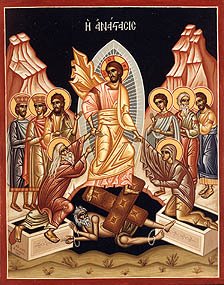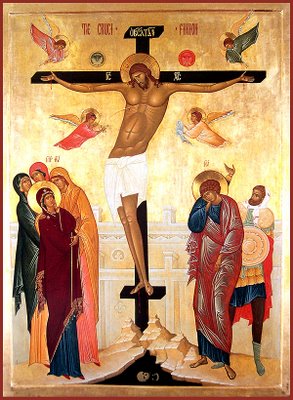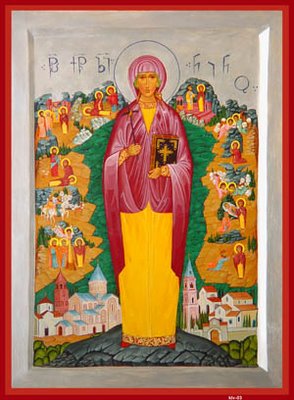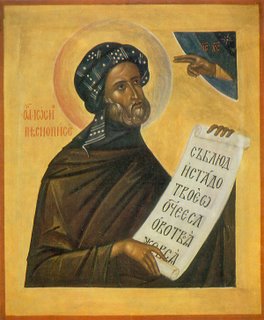Christ is Risen! Indeed He is Risen!

“This is the day of resurrection.
Let us be illumined by the Feast.
Let us embrace each other.
Let us call “brothers” even those that hate us,
and forgive all by the resurrection,
and so let us cry:
Christ is risen from the dead,Trampling down death by death,
And in the midst of our joy we hear proclaimed:
If anyone is a devout lover of God, let him enjoy this beautiful bright feast! If anyone is a grateful servant, let him rejoice and enter into the joy of his Lord!
If any have laboured long with fasting, let them now receive their wages! If any have toiled from the first hour, let them receive their due reward; If any have come after the third hour, let him with gratitude join in the Feast! And he that arrived after the sixth hour, let him not doubt; for he too shall sustain no loss. And if any delayed until the ninth hour, let him not hesitate; but let him come too. And he who arrived only at the eleventh hour, let him not be afraid by reason of his delay.
For the Lord is gracious and receives the last even as the first. He gives rest to him that comes at the eleventh hour, as well as to him that toiled from the first. To this one He gives, and upon another He bestows. He accepts the works as He greets the endeavour. The deed He honours and the intention He commends.
Let us all enter into the joy of the Lord! First and last alike receive your reward; rich and poor, rejoice together! Sober and slothful, celebrate the day!
You that have kept the fast, and you that have not, rejoice today for the Table is richly laden! Feast royally on it, the calf is a fatted one. Let no one go away hungry. Partake, all, of the cup of faith. Enjoy all the riches of His goodness!
Let no one grieve at his poverty, for the universal kingdom has been revealed. Let no one mourn that he has fallen again and again; for forgiveness has risen from the grave. Let no one fear death, for the Death of our Saviour has set us free. He has destroyed it by enduring it.
He destroyed Hell when He descended into it. He put it into an uproar even as it tasted of His flesh. Isaiah foretold this when he said, "You, O Hell, have been troubled by encountering Him below."
Hell was in an uproar because it was done away with. It was in an uproar because it is mocked. It was in an uproar, for it is destroyed. It is in an uproar, for it is annihilated. It is in an uproar, for it is now made captive. Hell took a body, and discovered God. It took earth, and encountered Heaven. It took what it saw, and was overcome by what it did not see.
O death, where is thy sting? O Hell, where is thy victory?
Christ is Risen, and you, O death, are annihilated!
Yesterday I was crucified with Him; today I am glorified with Him; yesterday I died with Him; today I am quickened with Him; yesterday I was buried with Him; today I rise with Him. But let us offer to Him Who suffered and rose again for us—you will think perhaps that I am going to say gold, or silver, or woven work or transparent and costly stones, the mere passing material of earth, that remains here below, and is for the most part always possessed by bad men, slaves of the world and of the Prince of the world. Let us offer ourselves, the possession most precious to God, and most fitting; let us give back to the Image what is made after the Image. Let us recognize our Dignity; let us honour our Archetype; let us know the power of the Mystery, and for what Christ died.
Let us become like Christ, since Christ became like us. Let us become God's for His sake, since He for ours became Man. He assumed the worse that He might give us the better; He became poor that we through His poverty might be rich; He took upon Him the form of a servant that we might receive back our liberty; He came down that we might be exalted; He was tempted that we might conquer; He was dishonoured that He might glorify us; He died that He might save us; He ascended that He might draw to Himself us, who were lying low in the Fall of sin. Let us give all, offer all, to Him Who gave Himself a Ransom and a Reconciliation for us. But one can give nothing like oneself, understanding the Mystery, and becoming for His sake all that He became for ours.
Your servant in Christ,
the priest Christopher






